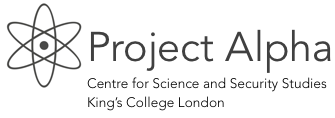Global sanctions regimes
- The direction of growth of global commerce is greatly influenced by international sanctions and control regimes. These change constantly in response to geopolitical or other developments. International agreements for example may include provisions for targeted and phased lifting of sanctions over lengthy periods (this is likely to be the case for any long-term agreement between Iran and the P5+1). To maintain a competitive edge in such an environment, companies in freight forwarding and related industries need a smart and adaptive approach to compliance.
- How to achieve this is a major challenge: How can companies best exploit commercial opportunities in newly accessible markets while ensuring compliance with changing sanctions? How can they avoid abuse by would-be proliferators or other sanctions violators? Companies will justifiably remain anxious about how to operate within the rules. Inevitably, there will be much uncertainty.
- As new commercial opportunities develop in response to changing sanctions regimes, it will also be vital for companies to communicate their implementation policies effectively, to customers, partners, subsidiaries and regulators. By being seen to set standards in this respect, companies can further consolidate market position.
Project Alpha and compliance good practices
- Project Alpha, based in King’s College, London, was set up in 2011 to support implementation of sanctions, particularly export controls, by the private sector and to develop good practices regarding cooperation with authorities. Project Alpha works with governments and the private sector in Europe, China, India and elsewhere.
- Project Alpha focuses on industrial and commercial sectors particularly affected by sanctions, such as producers of specialized technology and insurance, and also strongly supports the freight forwarding and related industries.
- Project Alpha drafted the UN Security Council report, “Sanctions compliance for the maritime transportation sector”. This report is the first step in setting global standards for sanctions compliance in the freight forwarding industry.
Project Alpha services available
- Project Alpha provides short- and long-term bespoke advice to individual clients on how to formulate and manage sanctions implementation policies and practices in complex and changing commercial environments. Services include:
- Providing well-informed advice regarding changes to sanctions regimes (whether, what and when sanctions are likely to be removed, what new sanctions could be introduced);
- Designing (or supporting design of) sanctions compliance systems that meet regulatory requirements while fulfilling business need;
- Providing analysis and assessments of the compliance status of individual transactions, and audits of overall compliance systems.
Project support
- Work will be undertaken under the auspices of Project Alpha based in the Centre for Science and Security Studies at King’s College, London (www.acsss.info / www.kcl.ac.uk/alpha).
Project staffing
- Former government officials, based in New York and London, backed by the resources of Project Alpha. The team possesses:
- Expertise in requirements placed on the private sector of the range of multilateral (UN) and unilateral sanctions regimes, and implementation of solutions;
- Extensive contacts with subject matter experts, academic practitioners and private sector practitioners;
- Long-standing experience in handling politically sensitive and confidential matters.
Project pricing
For negotiation, depending on scope and duration of contract
Project contacts
- This email address is being protected from spambots. You need JavaScript enabled to view it.
- This email address is being protected from spambots. You need JavaScript enabled to view it.

